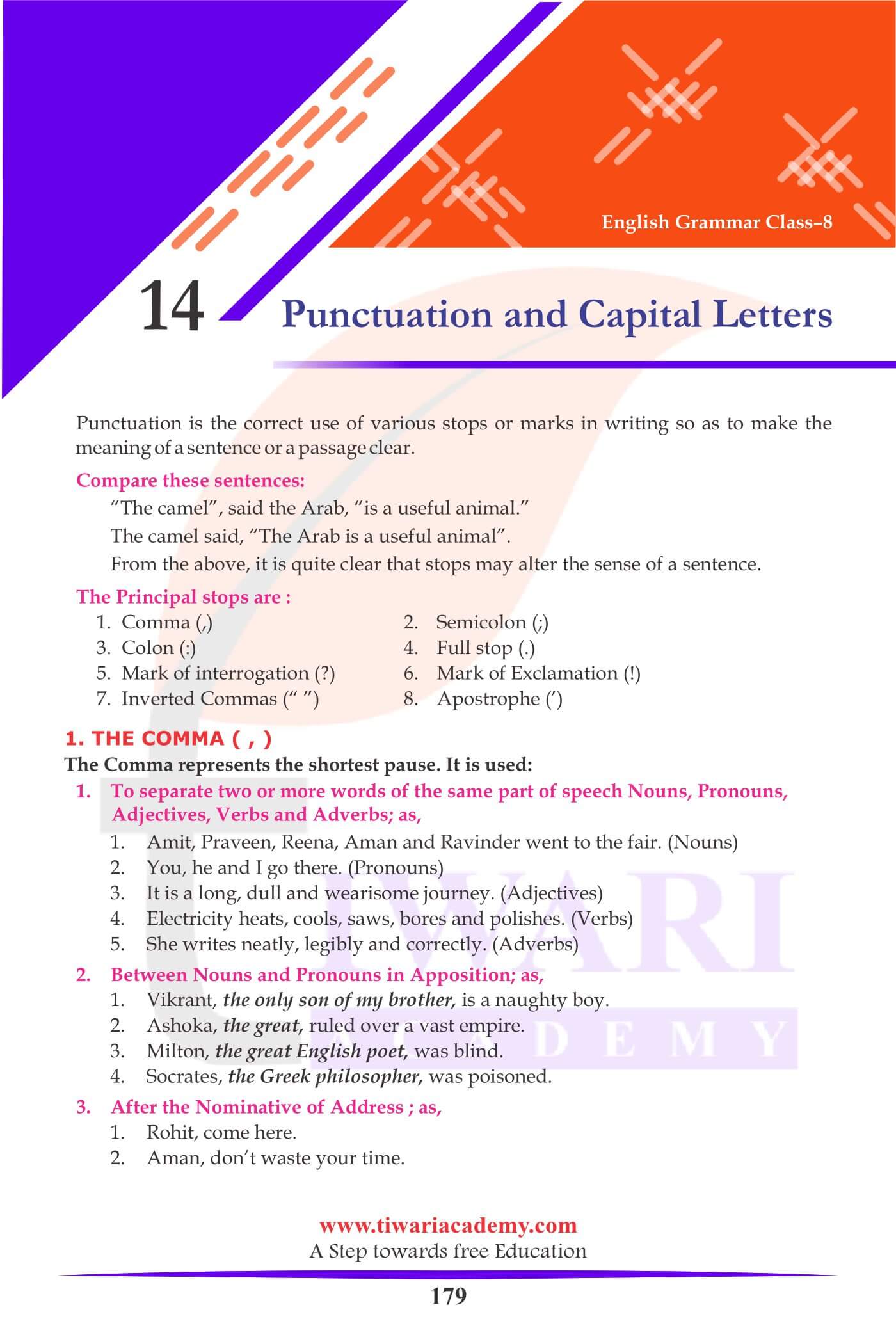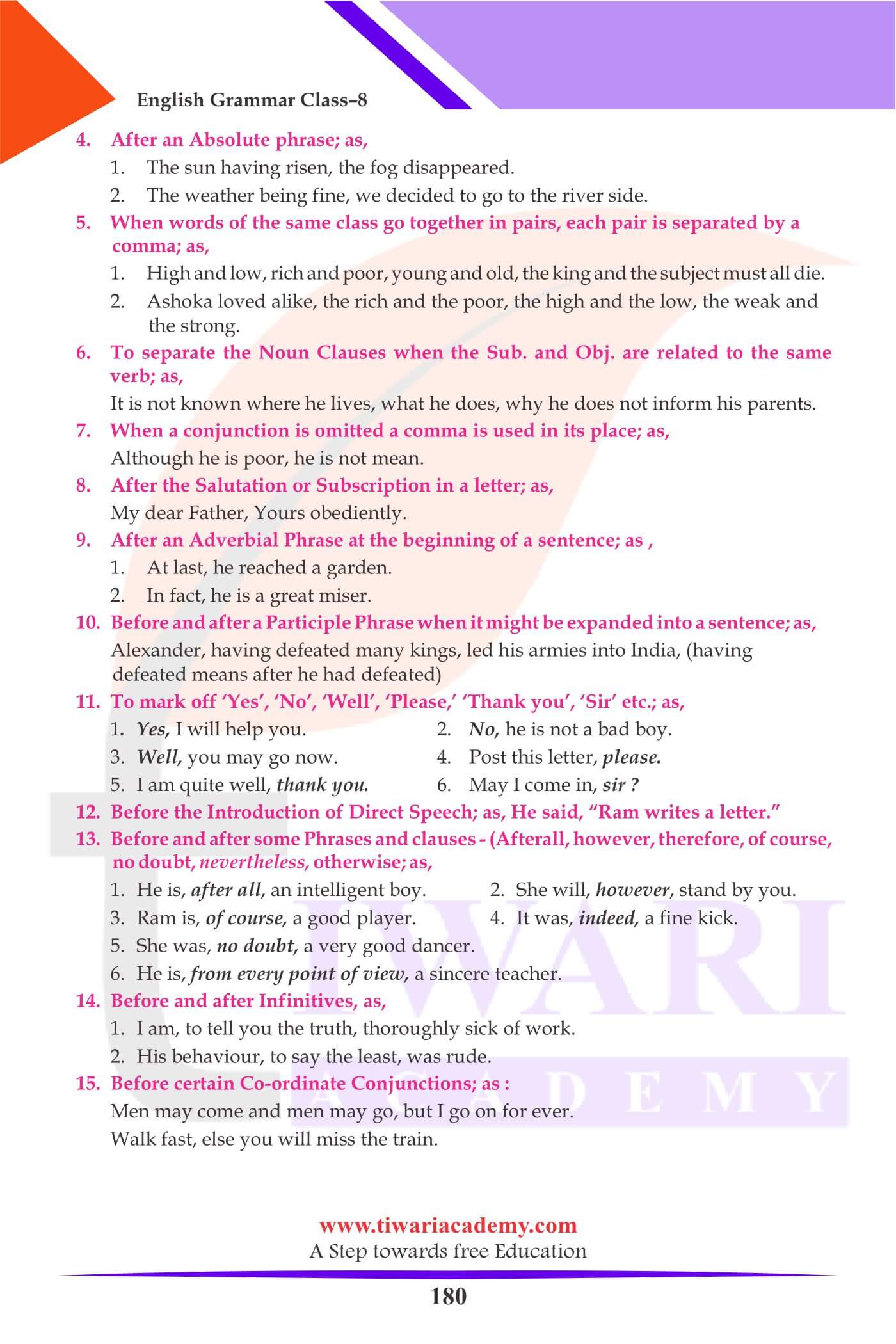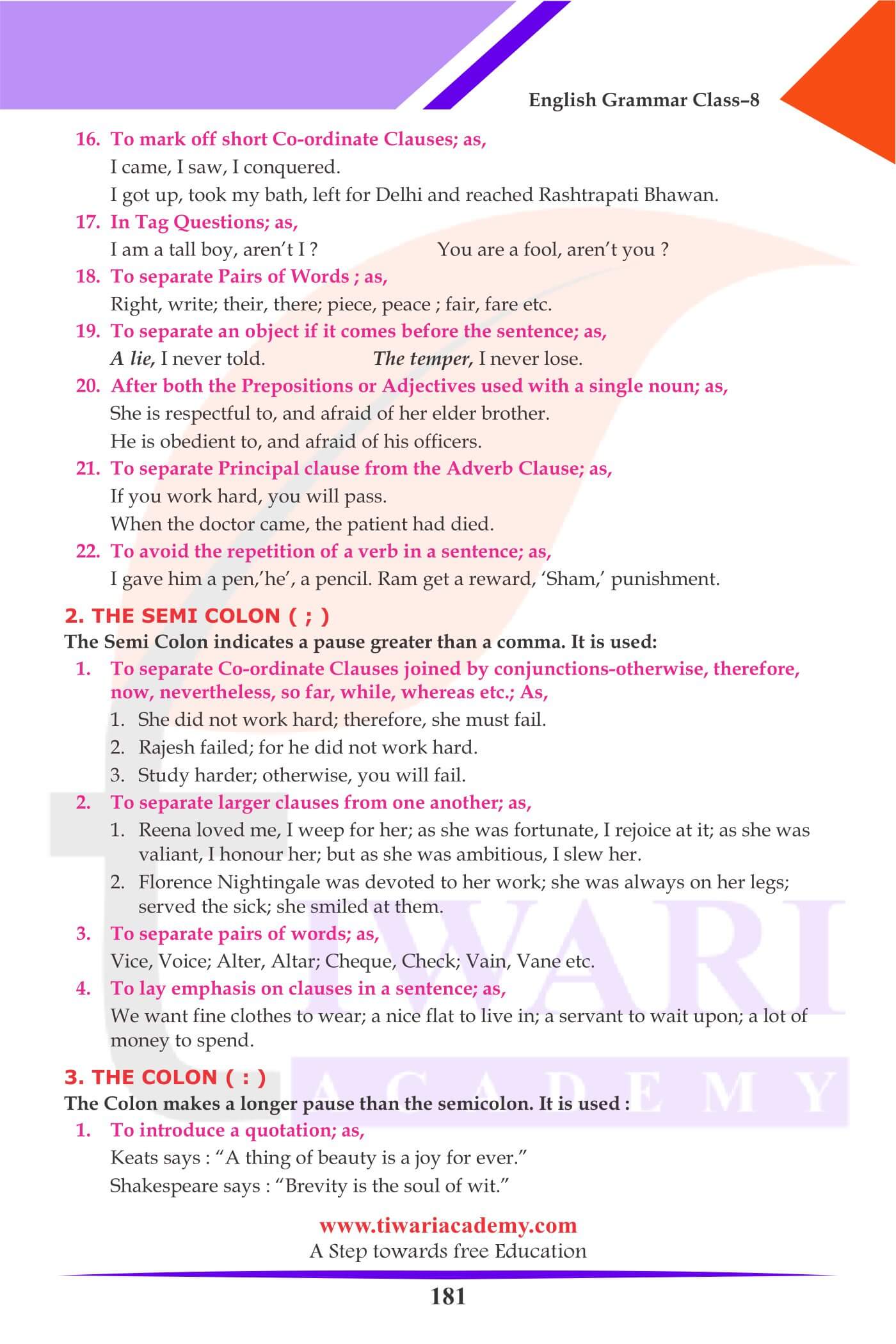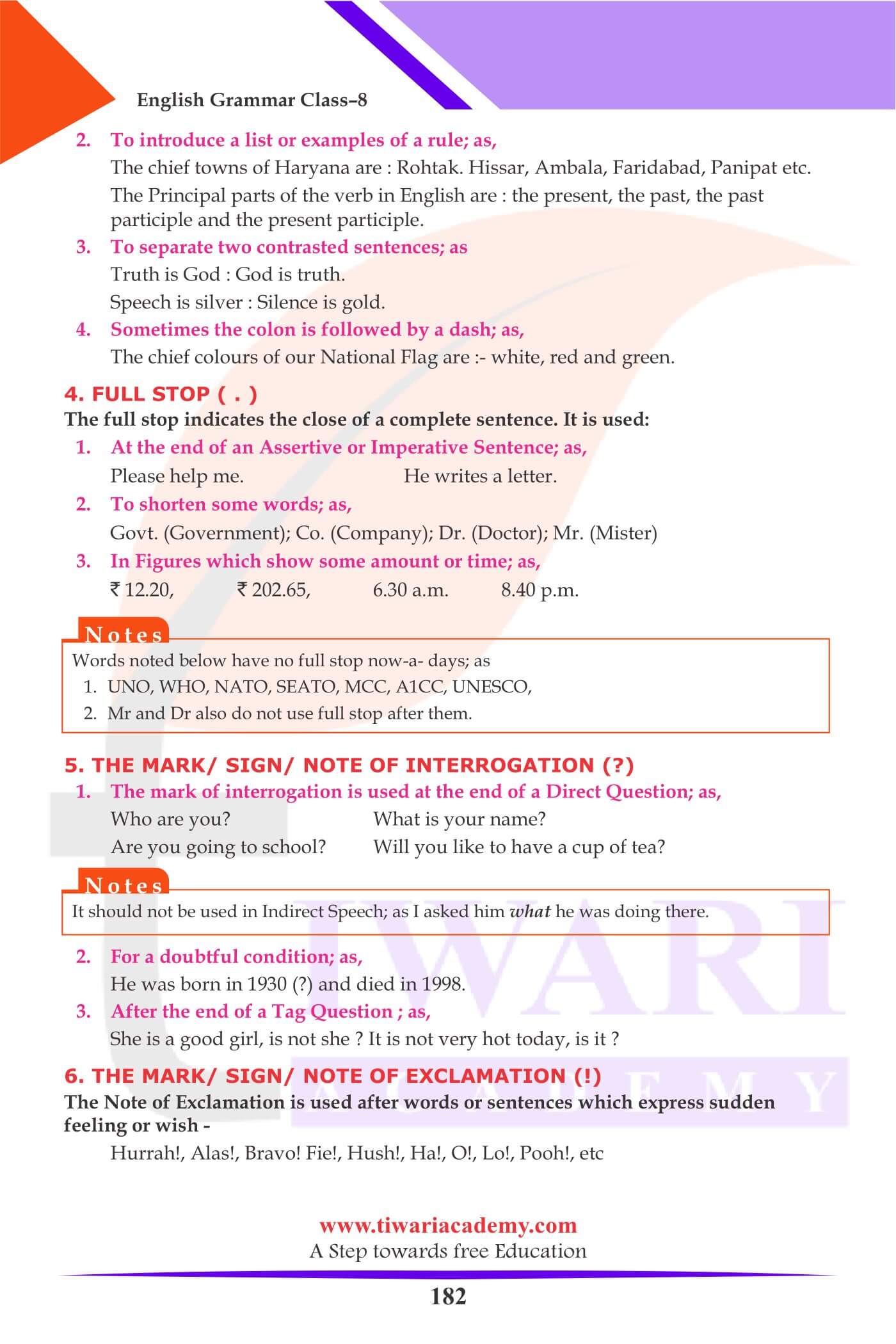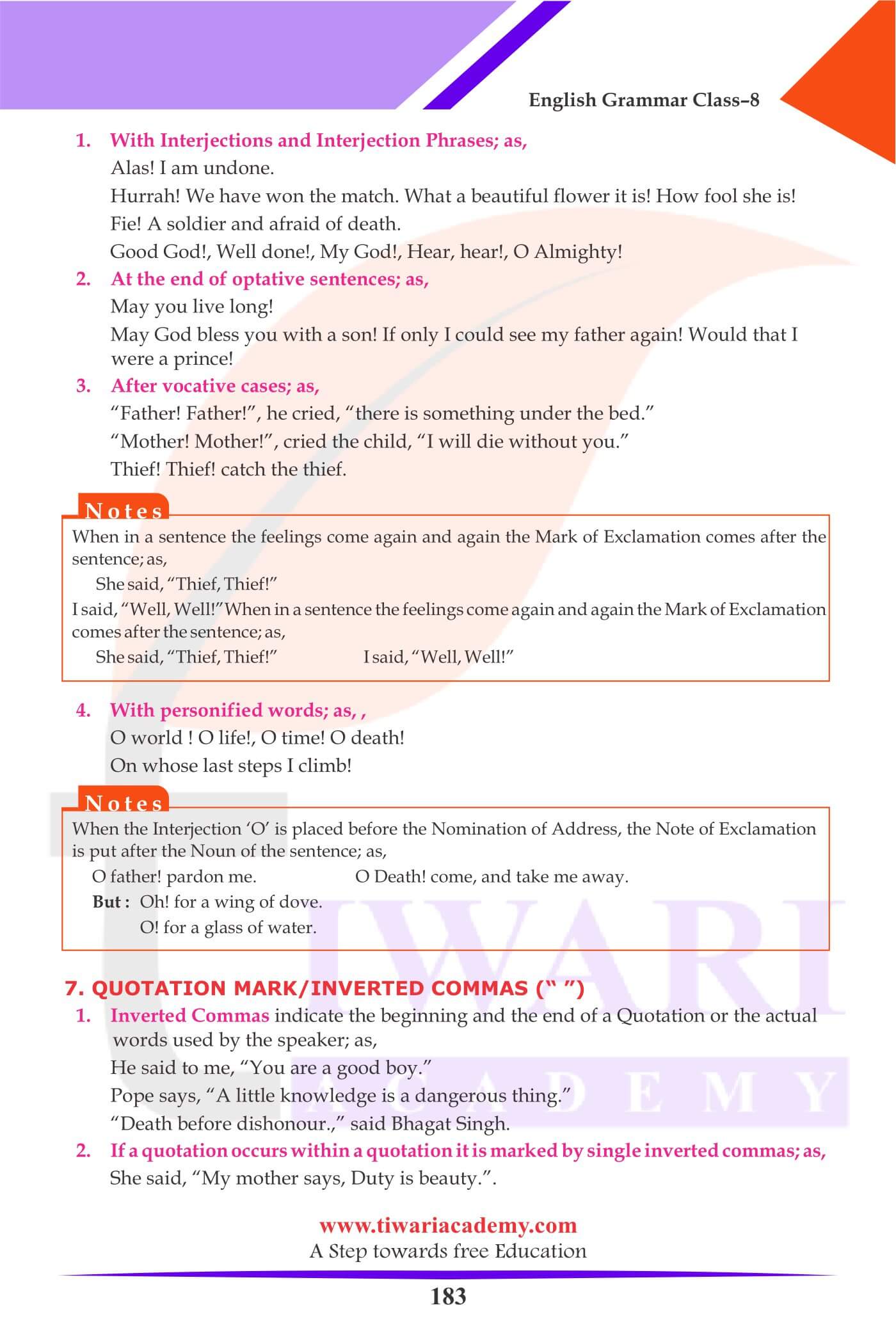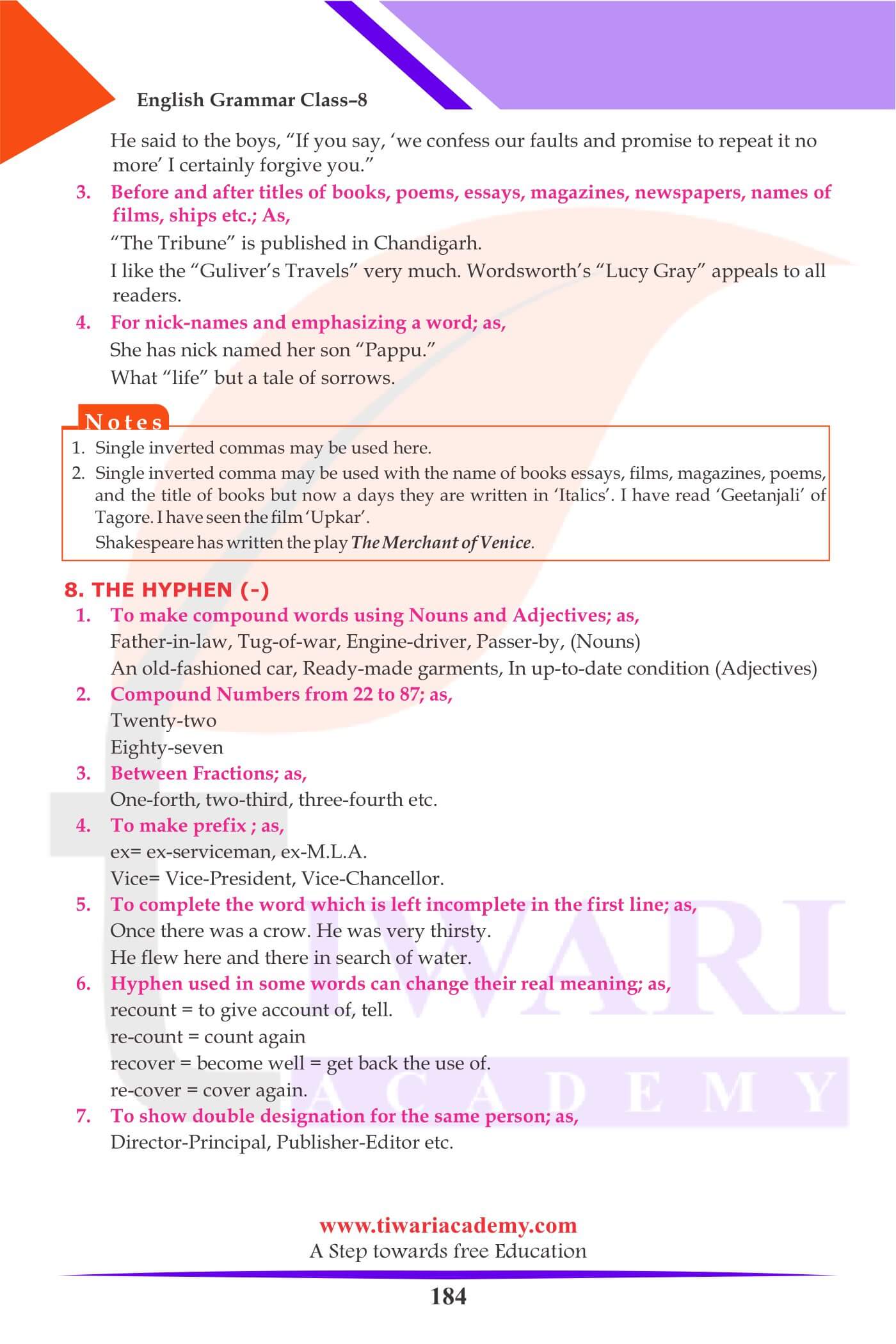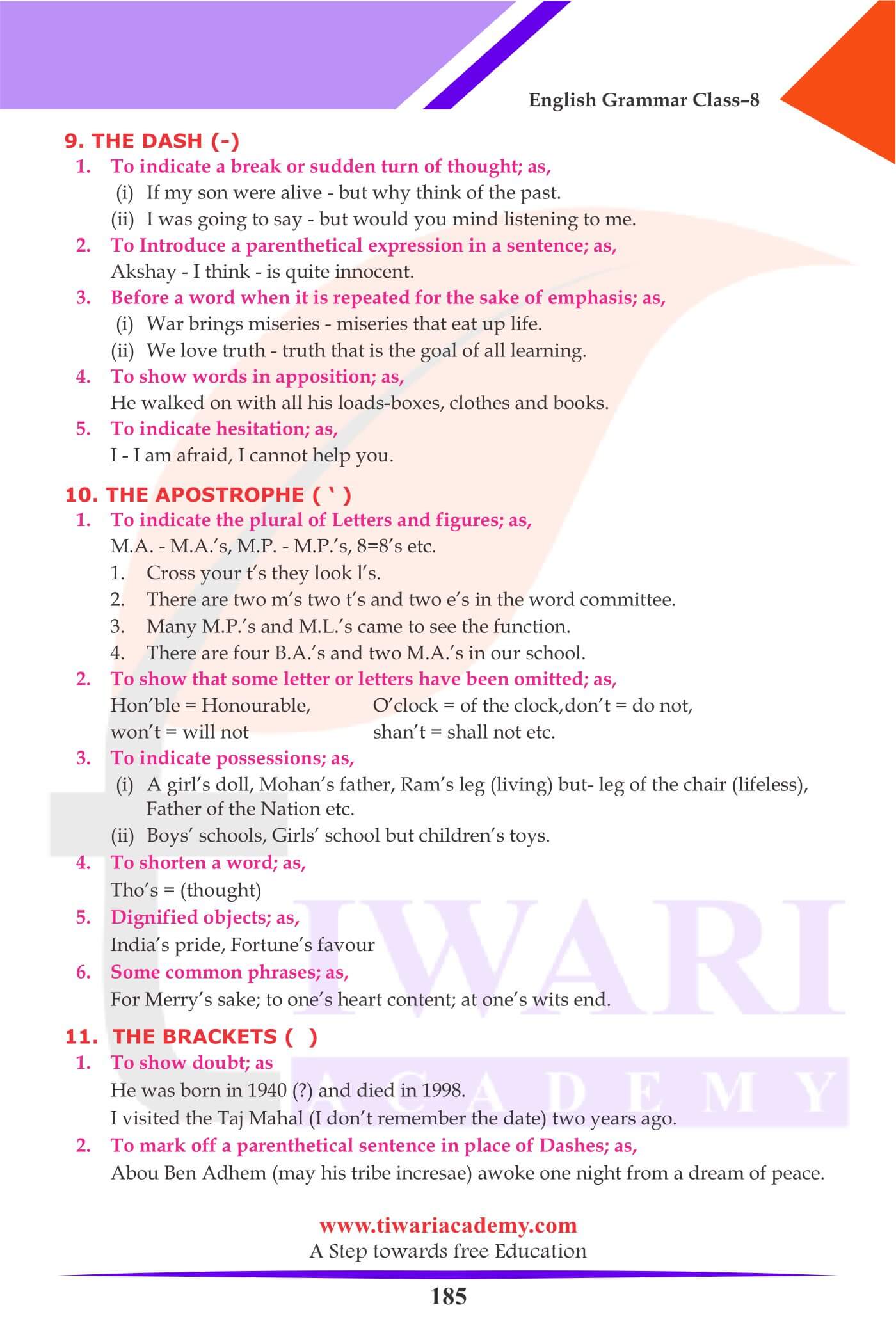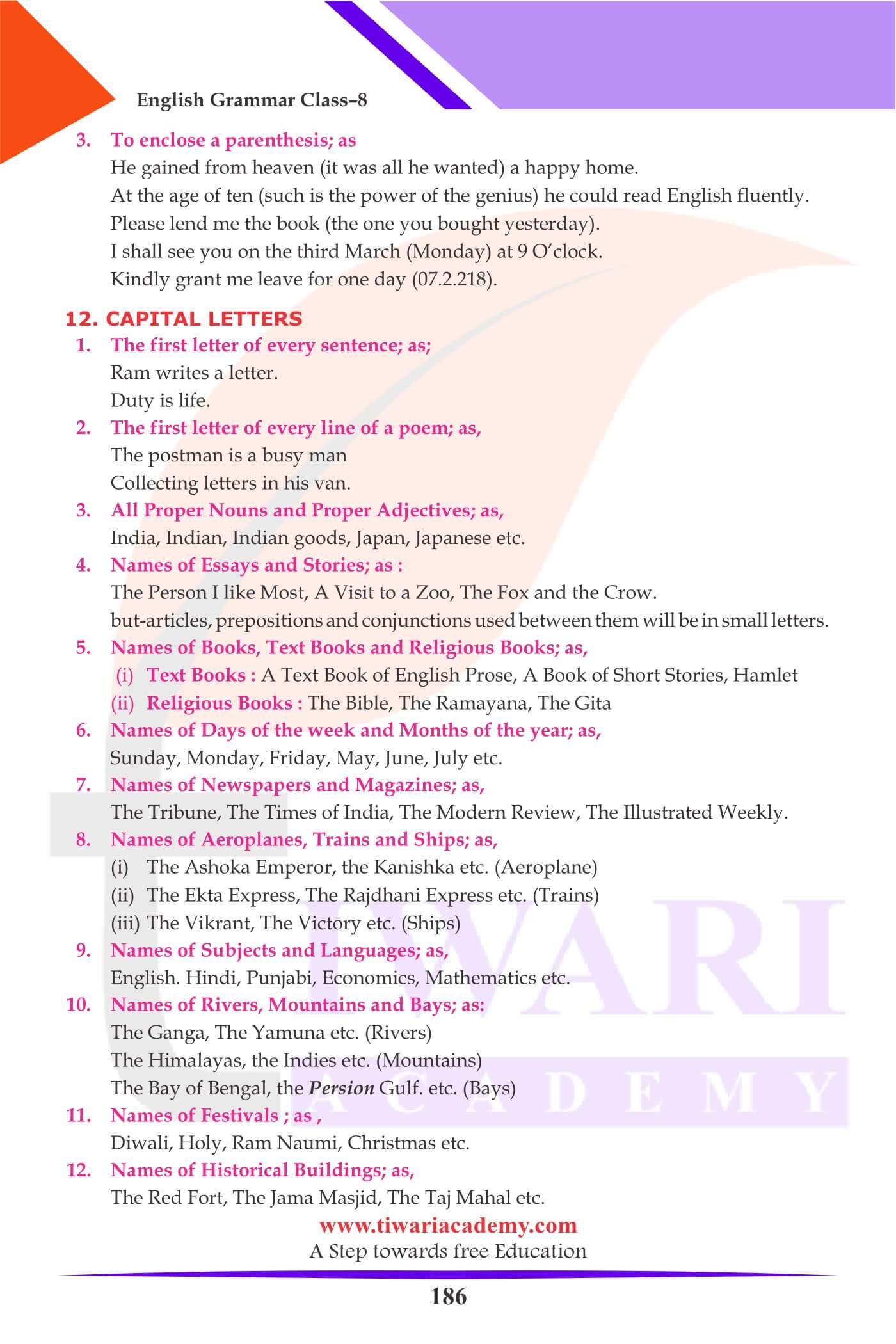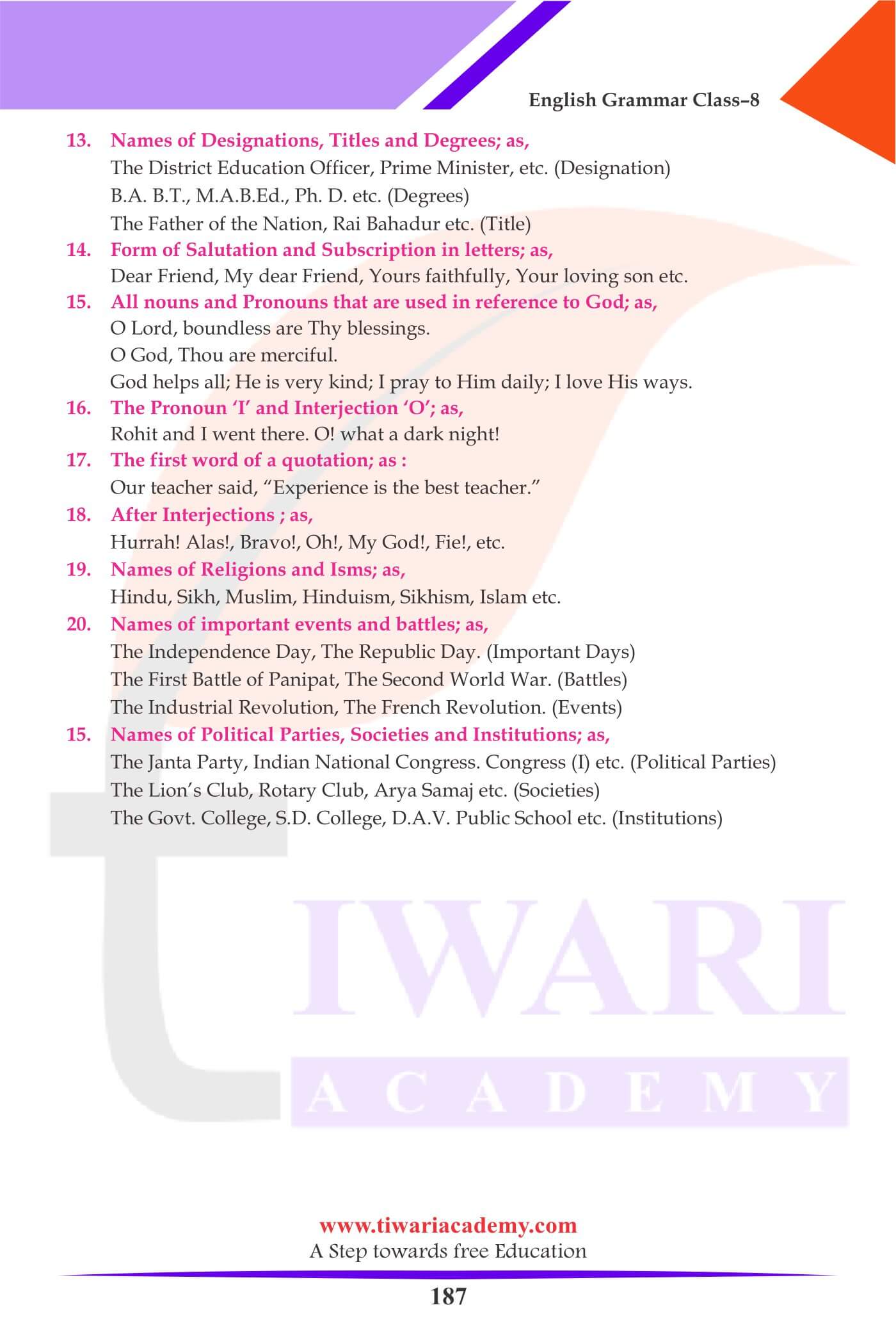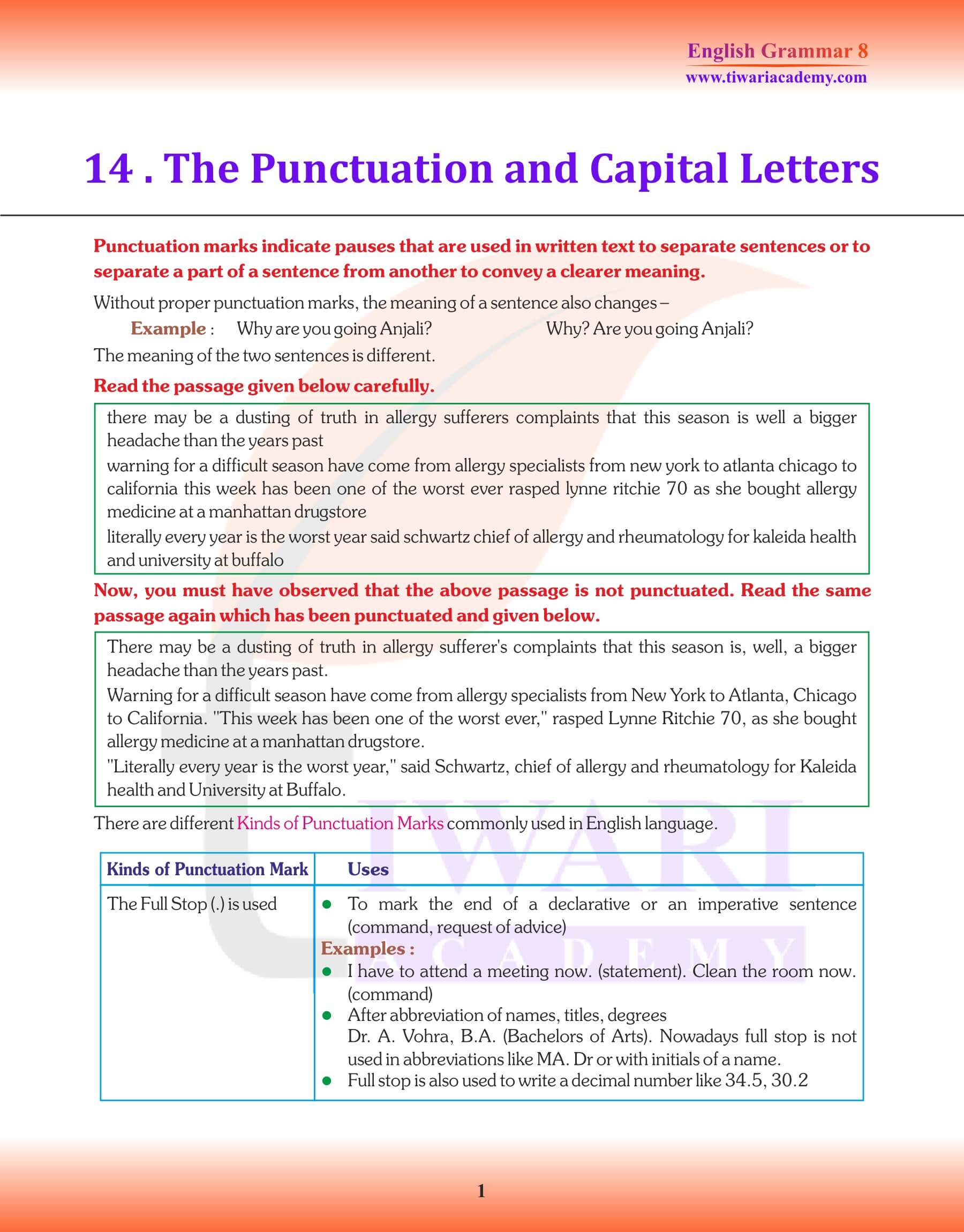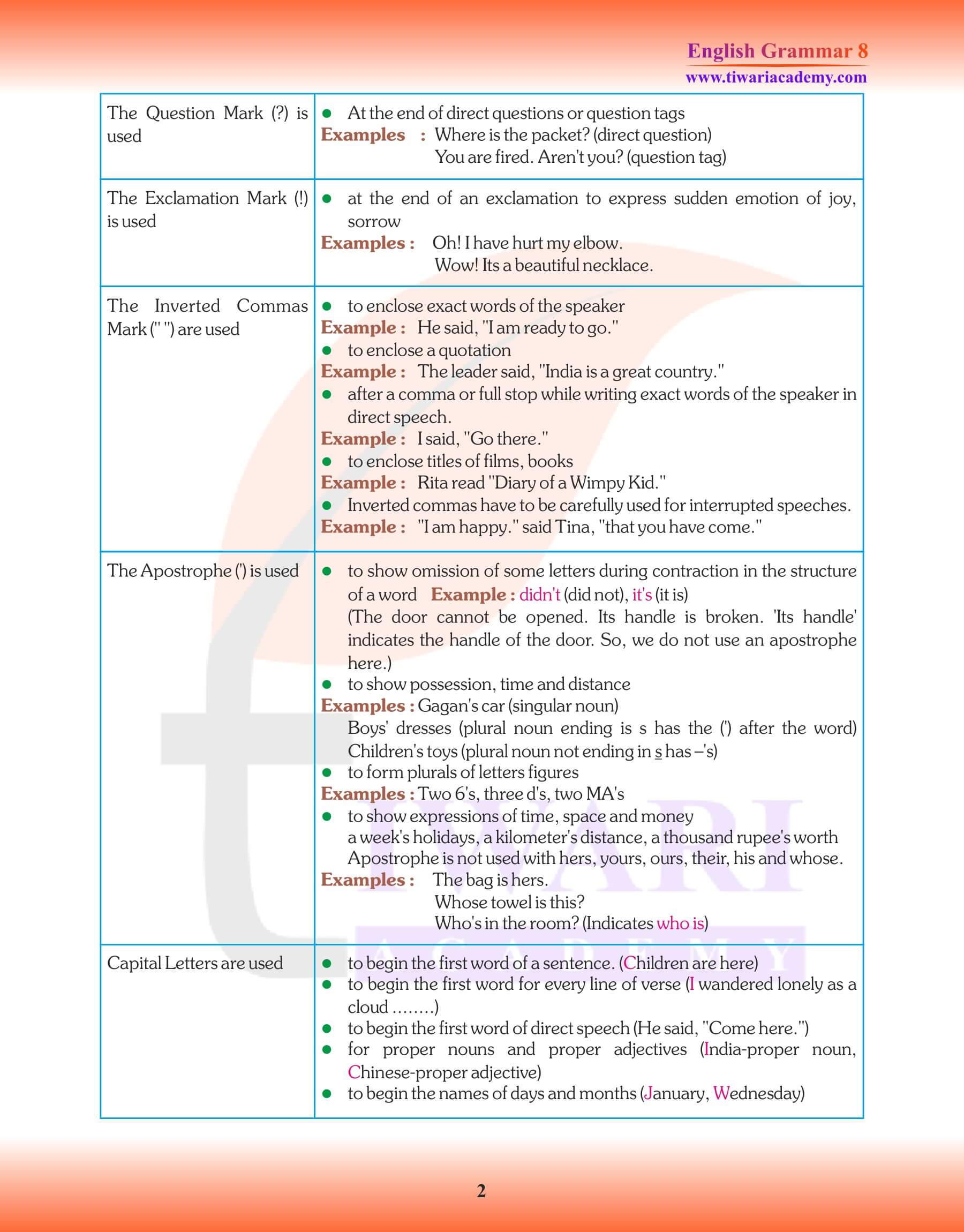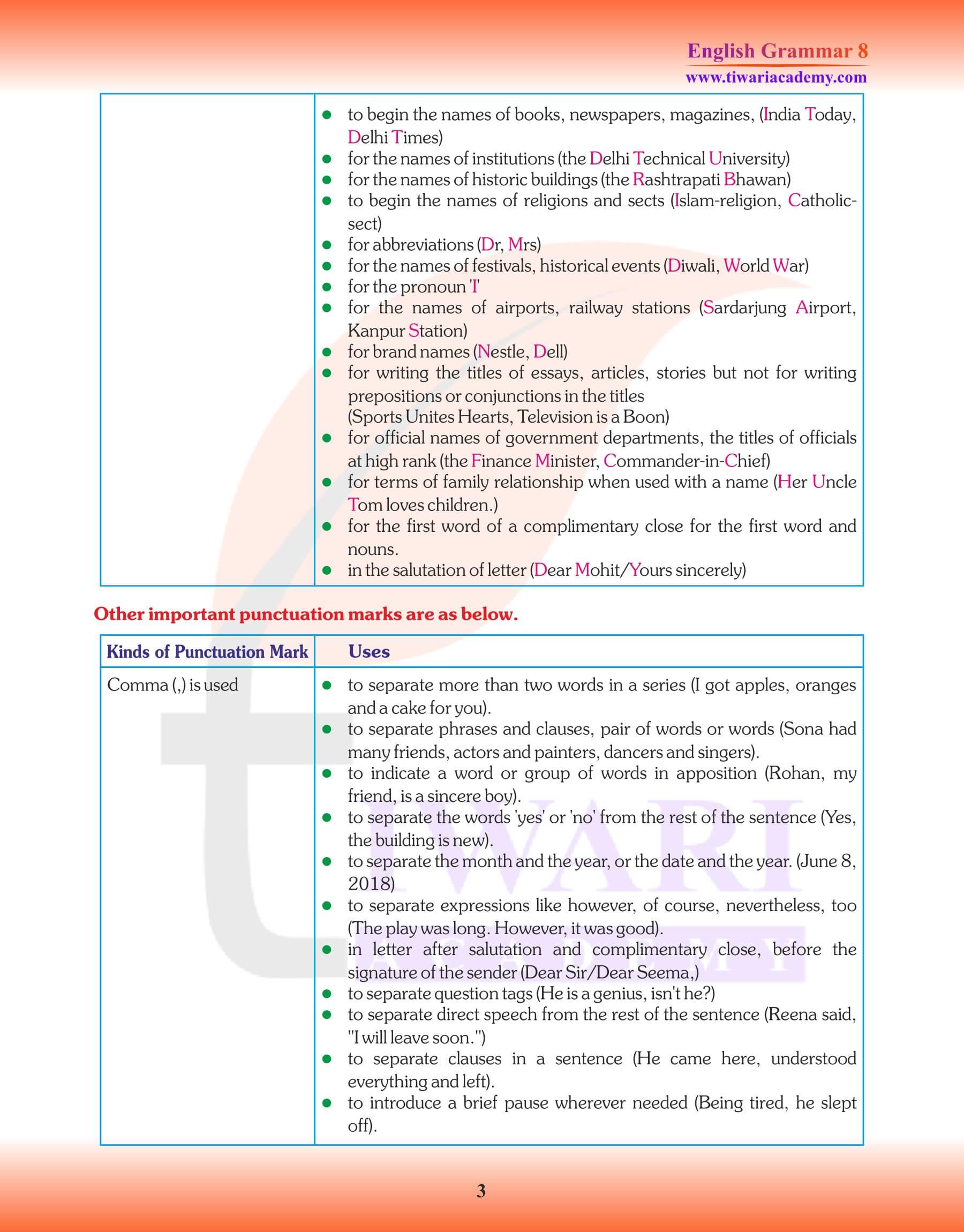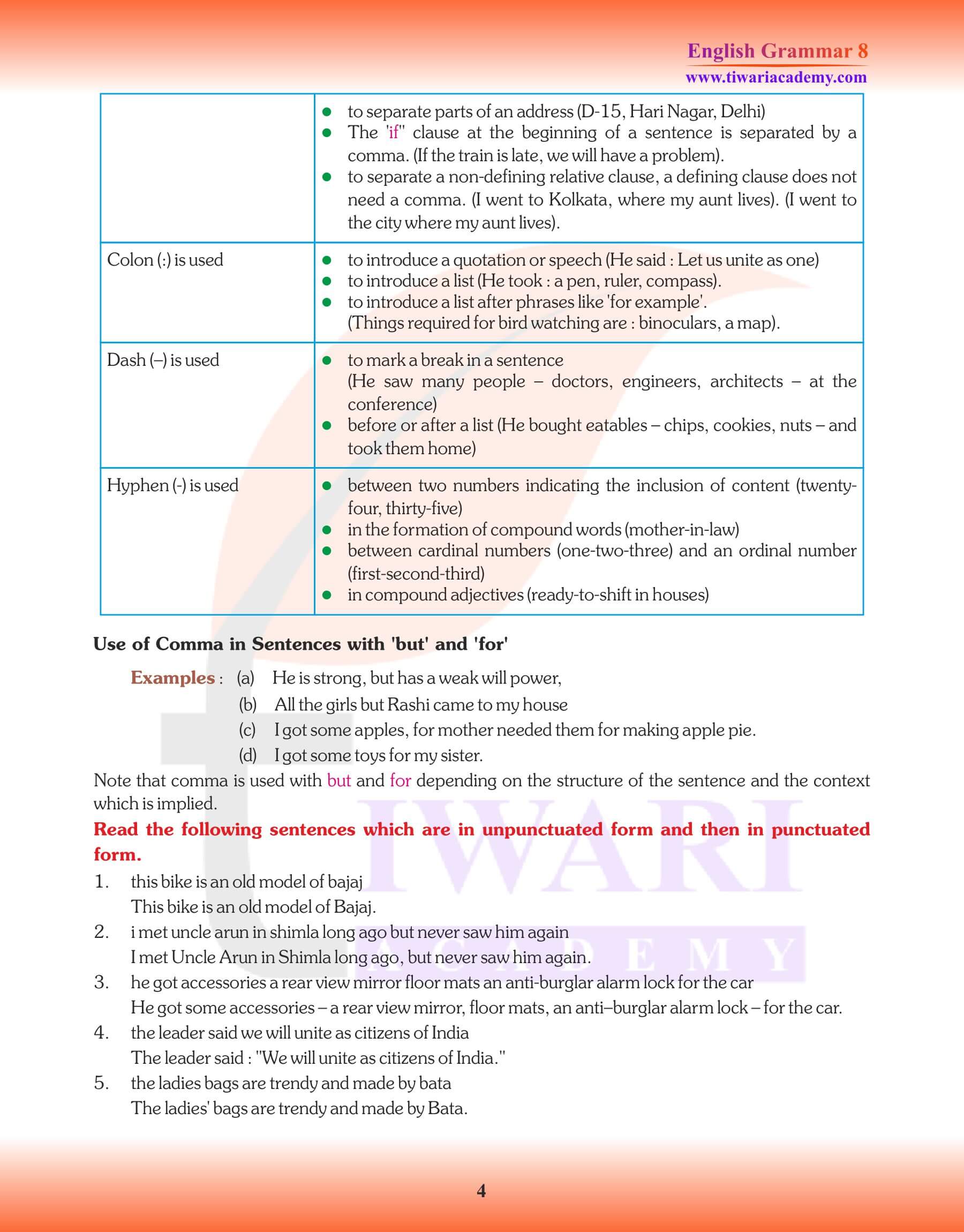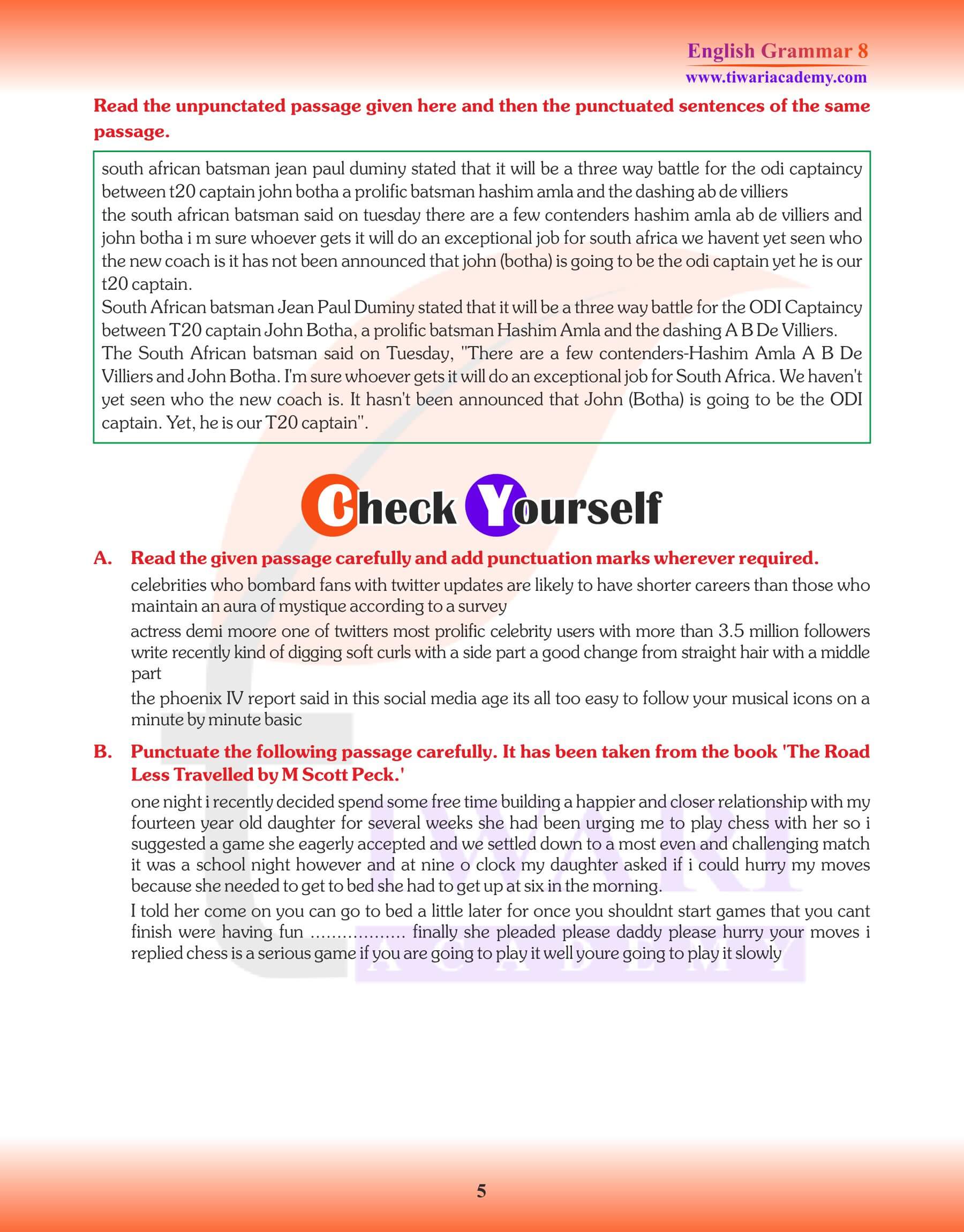Class 8 English Grammar Chapter 14 Punctuation and Capital Letters. Punctuation is the correct use of various stops or marks in writing so as to make the meaning of a sentence or a passage clear. The Principal stops are Comma (,), Semicolon (;), Colon (:), Full stop (.), Mark of interrogation (?), Mark of Exclamation (!), Inverted Commas (“ ”), Apostrophe (’). Get here complete explanation and examples of each stops for the preparation of exams.
Grade 8 English Grammar Chapter 14 Punctuation and Capital Letters
In the journey of mastering the English language, students encounter an essential chapter that shines a spotlight on the intricacies of punctuation and capitalization, presented adeptly in Class 8 English Grammar Chapter 14. Resources like Tiwari Academy’s NCERT Solutions provide a detailed guide on this subject, ensuring that students not only understand but also apply these rules seamlessly in their writing.
Punctuation is not merely about adding dots and dashes to one’s writing. It’s the art of using various stops or marks correctly in sentences to elucidate their meaning, making the content both coherent and engaging. Think of punctuation as the seasoning to a dish – just the right amount can elevate the dish, but an imbalance can overshadow its essence.
| Class: 8 | English Grammar |
| Chapter: 14 | Punctuation and Capital Letters |
| Academic Session: | 2024-25 |
| Content: | Study Material and Revision Book |
1. The Comma ( , )
The Comma represents the shortest pause. It is used to separate two or more words of the same part of speech Nouns, Pronouns, Adjectives, Verbs and Adverbs as,
- 1. Amit, Praveen, Reena, Aman and Ravinder went to the fair.
- 2. You, he and I go there.
- 3. It is a long, dull and wearisome journey.
- 4. Ashoka, the great, ruled over a vast empire.
2. The Semi Colon ( ; )
The Semi Colon indicates a pause greater than a comma. It is used.
- She did not work hard; therefore, she must fail.
- Rajesh failed; for he did not work hard.
- Study harder; otherwise, you will fail.
3. The Colon ( : )
The Colon makes a longer pause than the semicolon. It is used.
- Keats says: “A thing of beauty is a joy fore ever.”
- Shakespeare says: “Brevity is the soul of wit.”
- Truth is God: God is truth.
4. Full Stop ( . )
The full stop indicates the close of a complete sentence. It is used.
1. Please help me.
2. He writes a letter.
The chapter categorically introduces students to the principal punctuation marks. These include:
- Comma (,): A vital pause in sentences, often used to separate items in a list or independent clauses.
- Semicolon (;): A more substantial pause than a comma, it separates closely related independent clauses.
- Colon (:): Primarily employed to introduce a list or a quote.
- Full stop (.): Denotes the end of a statement or a declarative sentence.
- Mark of interrogation (?): Used at the end of direct questions.
- Mark of exclamation (!): Expresses strong emotion or emphasis.
- Inverted commas (“ ”): Used for quoting direct speech or highlighting specific phrases.
- Apostrophe (’): Signifies possession or is used in contractions.
Each punctuation mark, with its unique role, aids in giving structure and clarity to written content. Accompanied by apt examples and comprehensive explanations, platforms like Tiwari Academy equip students to grasp these nuances.
Parallelly, the chapter also emphasizes the importance of capital letters. While they predominantly mark the beginning of sentences, their use extends to proper nouns, titles, and more, ensuring respect and distinction where due.
5. The Mark/ Sign/ Note Of Interrogation (?)
The mark of interrogation is used at the end of a Direct Question as,
1. Who are you?
2. What is your name?
3. Are you going to school?
4. Will you like to have a cup of tea?
6. The Mark/ Sign/ Note of Exclamation (!)
The Note of Exclamation is used after words or sentences which express sudden feeling or wish.
Hurrah!, Alas!, Bravo!
1. Alas! I am undone.
2. Fie! A soldier and afraid of death.
3. May you live long!
7. Quotation Mark/Inverted Commas (“ ”)
Inverted Commas indicate the beginning and the end of a Quotation or the actual words used by the speaker as,
1. He said to me, “You are a good boy.”
2. Pope says, “A little knowledge is a dangerous thing.”
8. The Hyphen ( – )
To make compound words using Nouns and Adjectives as,
Father-in-law,
Tug-of-war,
Twenty-two,
One-forth,
Director-Principal
9. The Dash (-)
To indicate a break or sudden turn of thought as,
1. If my son were alive – but why think of the past.
2. I was going to say – but would you mind listening to me.
3. Akshya -I think – is quite innocent.
10. The Apostrophe ( ‘ )
To indicate the plural of Letters and figures as,
1. Cross your t’s they look l’s.
2. For Merry’s sake; to one’s heart content; at one’s wits end.
To sum it up, as students delve into Chapter 14, they are equipped with tools to refine their writing. With punctuation and capitalization serving as silent yet potent communicators, mastering them paves the way for clear, precise, and impactful expression.
11. The Brackets ( )
To show doubt as,
1. He was born in 1940 (?) and died in 1998.
2. I visited the Taj Mahal (I don’t remember the date) two years ago.
12. Capital Letters
The first letter of every sentence as,
1. Ram writes a letter.
2. Duty is life.
